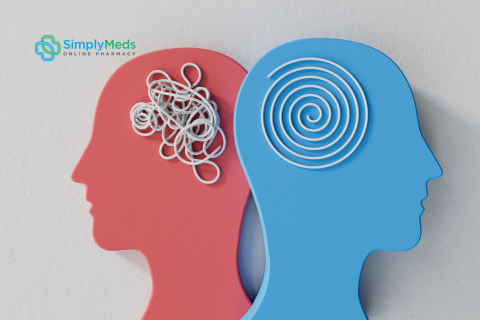Join the Fight this World Mental Health Day - October 10th
Oct 09, 2025
General Health
World Mental Health Day, taking place on the 10th of October, is a global opportunity to reflect on the importance of mental well-being, raise awareness of the challenges many face, and encourage open conversations that break down the stigma.
This year, the focus is on repeated exposure to conflicts and crises and how it impacts our daily lives and mental health. Taking care of our mental health is just as important as caring for our physical health. By making small changes to your daily routine, you can decrease your exposure and protect yourself.
Many negative things are going on in the world today, and social media makes it all too easy to see repetitive, distressing images and videos that can impact your mental health, even when you’re not directly involved.
Doomscrolling - consuming large volumes of negative news in one hit for a prolonged period of time - has become all too common over recent months. It can make you feel very emotional, and you may find it hard to draw yourself away. Ways to try and combat doomscrolling include:
- Setting a time limit on social media
- Control your feed, block or restrict certain channels or similar post types in your feed
- Turn off push notifications
- Use a watch or timer to cut down time spent online
- Have ‘phone free’ time
Download the Mental Health Foundations ‘Practical Ways to Manage Doomscrolling’ here.
You can learn more about the day from the Mental Health Foundation and Mind, two of the UK’s leading organisations supporting mental health awareness.
Why is Mental Health Important?
The quality of our mental health affects our ability to cope with stress, build relationships, and make decisions. When our mental health suffers, it affects not only our mood but also our physical well-being, productivity and quality of life.
One in four people in the UK experiences a mental health problem each year. These issues range from stress and anxiety to depression and more complex conditions. By raising awareness and encouraging support, we can create a society that values mental health as highly as physical health.
Good mental health is also closely tied to healthy living. Adequate sleep, balanced nutrition, exercise and positive social interactions all contribute to a stronger sense of well-being.
Mental Health in the Workplace
For many, the workplace is a source of both fulfilment and stress. Long hours, tight deadlines and high expectations can contribute to anxiety and burnout. Employers have an important role to play in fostering a supportive environment.
Practical steps include:
- Offering flexible working arrangements
- Encouraging regular breaks
- Promoting open conversations about stress and well-being
- Providing resources such as counselling services
When employees feel supported, they are more motivated, productive and engaged. Businesses also benefit from lower absenteeism and improved workplace culture.
Fighting Social Stigma
One of the biggest barriers to mental health support is stigma. Many people feel ashamed to admit they are struggling, fearing judgment from others. This silence can prevent them from seeking the help they need. There is still the assumption, amongst some people, that mental health problems are a weakness and that men, in particular, should “get over it”. Mental health does not discriminate. It doesn’t care about age, gender, identity, religion or location. Fighting these social stigmas and creating more opportunities to talk all help.
Breaking down stigma starts with conversations. By talking openly about stress, anxiety, depression and other challenges, we normalise these experiences and remind others that they are not alone. Schools, workplaces, communities and families all have a role in creating safe spaces for these discussions. Organisations such as Andy’s Man Club and Movember are great examples of creating opportunities for men to talk about and raise awareness of men’s health.
World Mental Health Day provides a global platform to push back against stigma. By wearing green ribbons, sharing experiences and supporting campaigns, we show that mental health matters.
Lifestyle Changes to Improve Your Mental Health
Small lifestyle adjustments can make a significant difference to mental well-being. Here are some evidence-based approaches:
Sleep - Poor sleep is both a symptom and a cause of stress and low mood. Create a routine that promotes going to bed at a similar time each day, limit screen time/blue light for an hour before you sleep and make sure your bedroom is cool, dark and comfortable.
Exercise - Regular physical activity boosts endorphins, reduces stress hormones, and improves overall mood. Even a brisk walk can have noticeable benefits.
Nutrition - A balanced diet supports both body and mind. Vitamins and minerals play a vital role in maintaining energy levels, reducing fatigue, and supporting brain function. Supplements can be useful if your diet is lacking in certain nutrients.
Some examples include:
- Methyl B12 – Vitamin B12 is essential for energy production and nervous system health. Low levels can lead to fatigue, brain fog and low mood. Supplementing with B12 can help maintain focus and mental clarity.
- Centrum Advance – A daily multivitamin providing a wide range of nutrients that support overall well-being, including vitamin D, B vitamins and minerals important for stress regulation.
- Feroglobin Capsules – Iron contributes to the reduction of tiredness and fatigue. Maintaining healthy iron levels supports energy and focus, which are crucial for mental resilience.
- Wellwoman Original – Tailored for women’s health, this supplement includes iron, vitamin B6 and other nutrients to help reduce tiredness and support hormonal balance, which is closely linked to mood and mental health.
- Immunace Extra Protection – Designed to support the immune system, this supplement also provides antioxidants and vitamins that protect against oxidative stress, which can impact mental well-being.
Mindfulness and Relaxation Can Help With Mental Health
Techniques like meditation, yoga and deep breathing exercises help reduce stress and increase resilience. Even ten minutes a day can bring noticeable improvements. This isn’t a cure-all, as everyone is different, however, it is worth incorporating mindfulness into your day.
Social Connections
Spending time with friends, family, or community groups provides a sense of belonging and reduces feelings of isolation.
Help and Support is Available
If you or someone you know is struggling, support is available. It is important to remember that reaching out is a sign of strength, not weakness.
In the UK, you can access:
- Your GP, who can provide guidance and referrals
- Mind – offering information and support
- Mental Health Foundation – promoting awareness and community action
- Helplines such as Samaritans (116 123), which provide free, confidential support
Employers, schools and universities also often provide mental health services, so it is worth checking what is available in your local area.
Taking Action This World Mental Health Day
Take a moment to reflect on your own mental health and that of those around you. Whether it is starting a conversation, joining an awareness campaign, or making small lifestyle changes, every step counts.
Looking after your mental health is not just about one day of the year. It is a commitment to self-care and compassion that continues throughout life. With awareness, support and healthy living, we can all play a part in building a world where mental well-being is valued and protected.
Don’t suffer in silence. Talk to others and seek help from a professional, such as your GP, if you have mental health concerns.




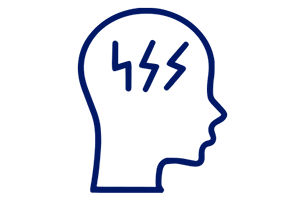








































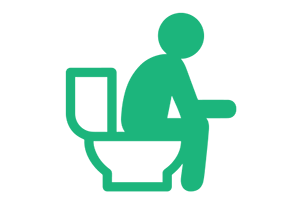

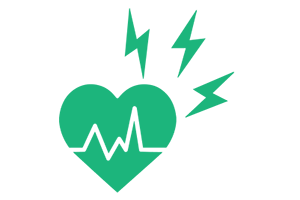




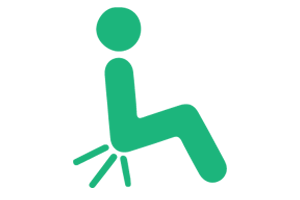



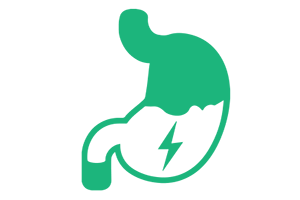







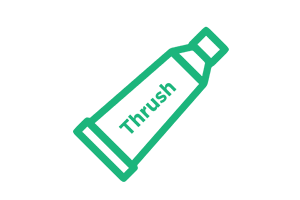














 Account
Account










